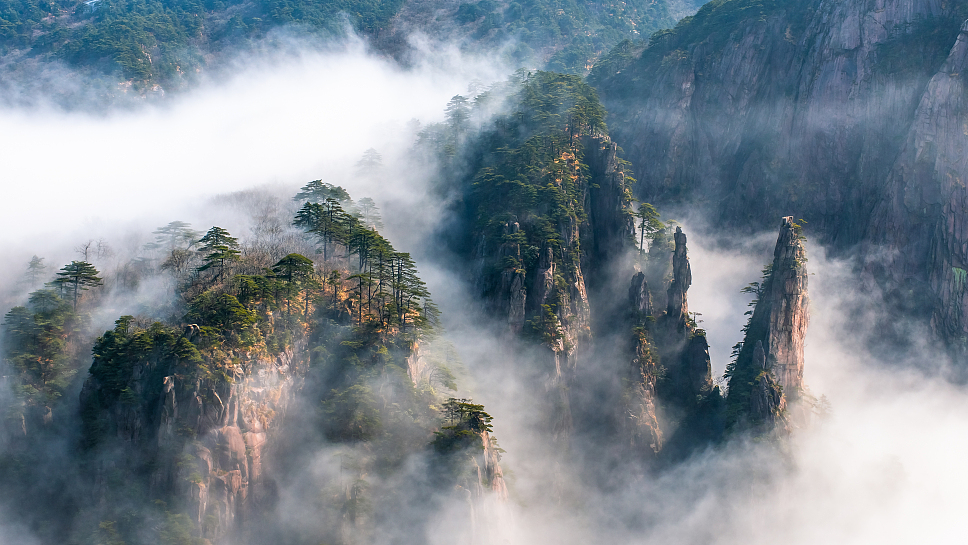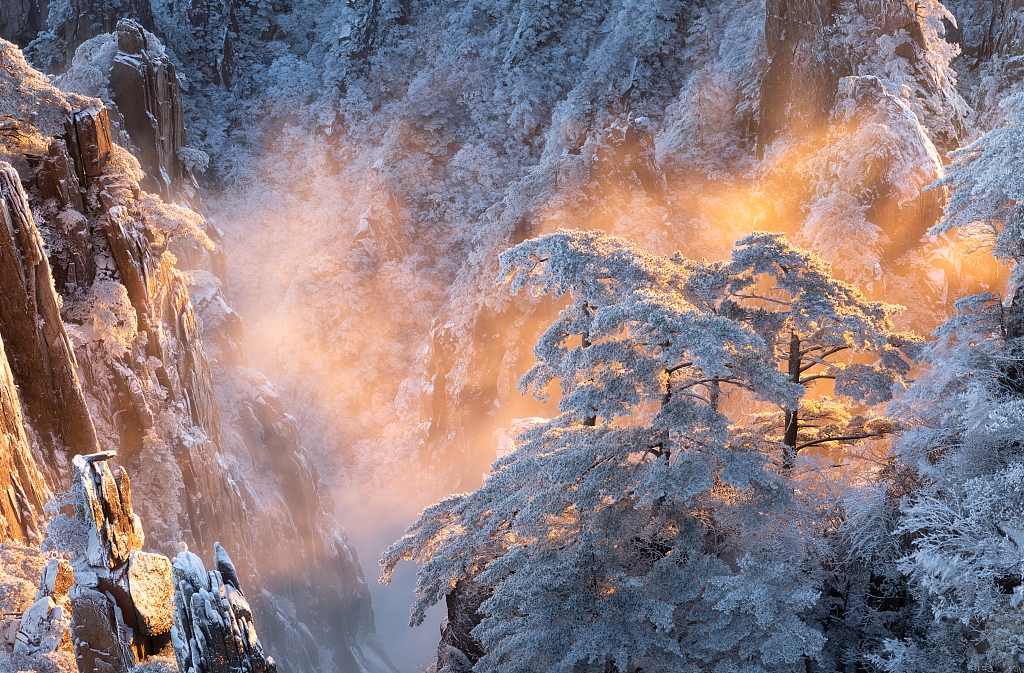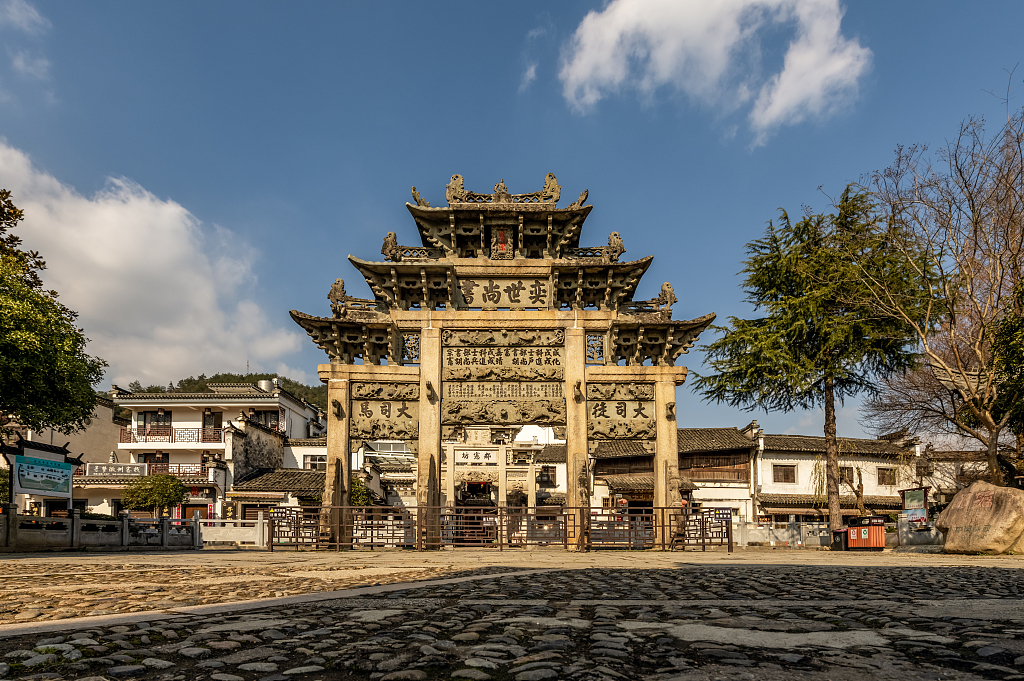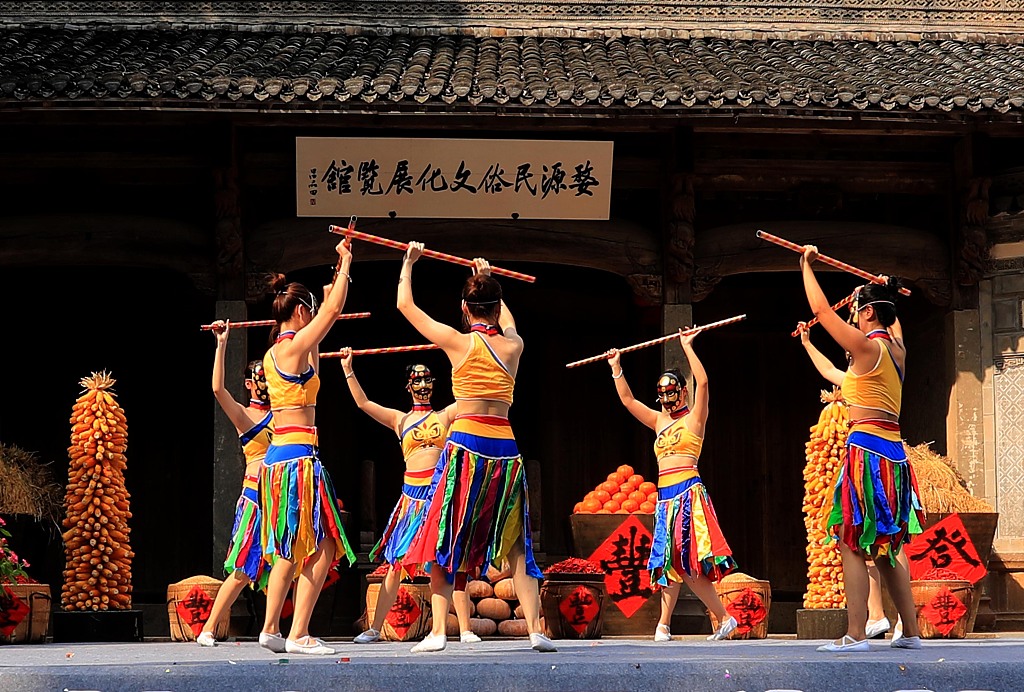
Huangshan Mountain, a UNESCO World Heritage Site in Anhui Province /CFP
Huangshan Mountain, a UNESCO World Heritage Site in Anhui Province /CFP
Huizhou is a culturally significant region of China with a long history. The unique Huizhou culture has been shaped over time, is characterized by its rich cultural heritage, and is centered around the historical Huizhou Prefecture.
In December 2019, the Ministry of Culture and Tourism approved the establishment of the Huizhou cultural and ecological protection zone located across Anhui Province’s Huangshan City, Jixi County, as well as Wuyuan County in Jiangxi Province, making it the first cross-provincial cultural and ecological protection zone in China.
Located in Huangshan City, Huangshan Mountain is a must-visit destination for tourists. It is renowned as one of the top ten most famous mountain ranges in China and boasts an impressive view of 72 peaks.
As a symbol of Anhui tourism, Huangshan Mountain is the only mountain landscape among China’s top ten scenic spots. Its beauty and cultural significance have earned it numerous accolades, including the UNESCO World Heritage Site of both culture and nature, a global geopark and a national 5A-level tourist scenic spot.

Huangshan Mountain in winter /CFP
Huangshan Mountain in winter /CFP
The Huangshan cliff carvings in Huangshan scenic area were created from the Tang Dynasty onwards to modern times. Throughout history, many literati and scholars were attracted to the magnificent and perilous Huangshan Mountain to create many poems, songs, and other writings, leaving behind numerous cliff carvings.

Tourist taking photo of a Huangshan cliff carving in Huangshan scenic area /CFP
Tourist taking photo of a Huangshan cliff carving in Huangshan scenic area /CFP
There are over 200 well-preserved inscriptions and four stone tablets, covering an area of approximately 4,450 square meters, with exquisite calligraphy in seal script, clerical script, regular script, running script, and cursive script.
Through these cliff carvings, it is easy to feel the charm and elegance of the Chinese landscape culture with a strong ethnic flavor.
Whether you are a nature lover, a history buff, or simply seeking a memorable travel experience, a visit to Huangshan promises to be a feast for the senses and an unforgettable adventure.

Huizhou architecture in Jixi County, Anhui Province /CFP
Huizhou architecture in Jixi County, Anhui Province /CFP
Apart from natural resources, culture is also a primary way to experience the local history and charm of the region.
Jixi County in Anhui Province is the core area of Huizhou culture, and an integral part of its historical development. Among the various elements of Huizhou culture, the merchant culture is one of the most iconic and well-known aspects.
The Huizhou merchants were a dominant force in ancient China’s business community, thanks to their vast resources, extensive merchant networks, diverse industries and strong business acumen. They ranked among the top ten business guilds in China and maintained their dominance for centuries.
Their success was also attributable to a respect for Confucian values. Once they had accumulated wealth, many Huizhou merchants focused on cultural development, donating funds to education and inviting scholars to give lectures.
The rise and fall of Huizhou merchants may be a thing of the past, but tourists can still travel there to soak up the local history and culture.

Nuo dance performances are a popular tourist attraction. /CFP
Nuo dance performances are a popular tourist attraction. /CFP
The Wuyuan Nuo dance, also known as the “Ghost Dance,” has a long history. It is considered a “living fossil” in the study of ancient Chinese dance history, attracting the attention of experts and scholars from both home and abroad.
The Nuo dance is a religious dance that was popular in ancient China’s Yangtze River Basin. The dancers wear various simple and exaggerated masks with distinct shamanistic colors. Originally, it was a ritual of prayers and blessings, but it has gradually developed into a folk dance over time.
The protection of intangible cultural heritage is highly valued. On May 20th, 2006, Wuyuan Nuo Dance was approved by the State Council to be included in the first batch of China’s national list of intangible cultural heritage.
And to this day, passionate Nuo dance performances in the Huangling scenic area of Wuyuan still prove a popular attraction with tourists.